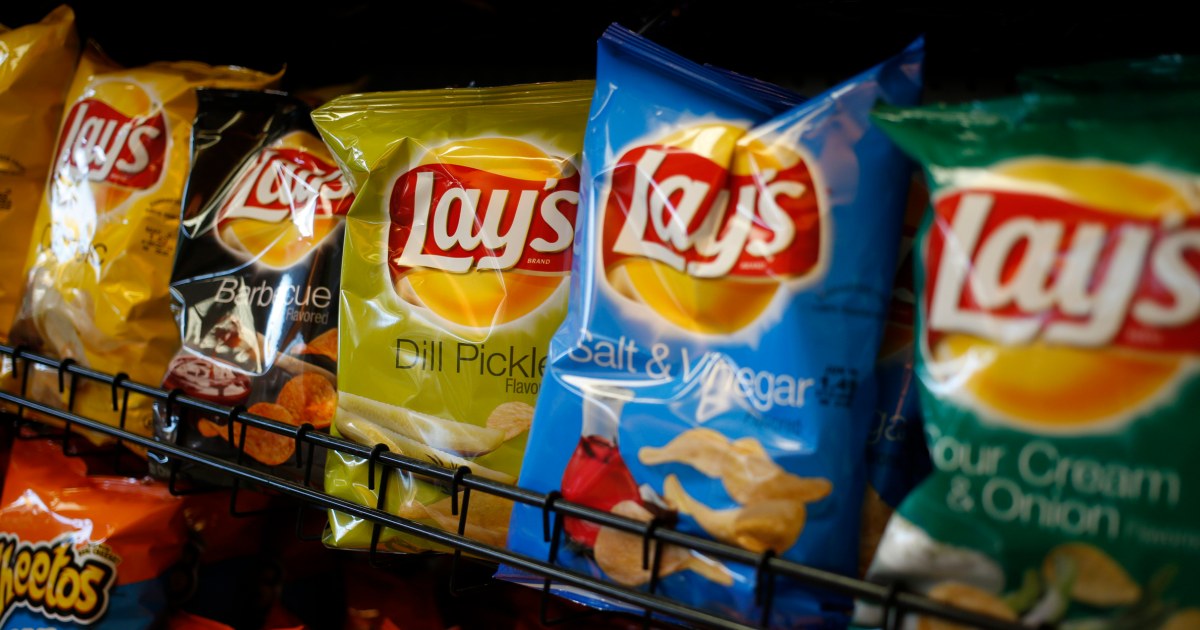The agency wants to lower how much salt we consume over the next three years to an average of 2,750 milligrams per day. That’s still above the recommended limit of 2,300 mg.
The Food and Drug Administration on Thursday laid out fresh goals to cut sodium levels in packaged and processed foods by about 20%, after its prior efforts to address a growing epidemic of diet-related chronic diseases showed early signs of success.
The FDA in October 2021 had set guidelines to trim sodium levels in foods ranging from potato chips to hamburgers in a bid to prevent excessive intake of salt that can trigger high blood pressure, a major risk factor for heart disease and stroke.
The agency is now seeking voluntary curbs from packaged-food makers such as PepsiCo, Kraft Heinz and Campbell Soup. The companies did not immediately respond to requests for comment.



I feel like I recall a story about a chip company that slowly reduced their salt content by like 50% over a number of years and literally no one noticed or complained.
I definitely saw another story about how they were researching pyramid-shaped salt crystals because they have higher surface area to volume, and with cuboid salt you wind up swallowing it before the whole thing even dissolves, so you’re not even getting a theoretical flavor experience, it’s just going straight into your gut.
We eat too much salt. It’s absurd.
Salt is not an issue if you’re healthy and drink enough water. Our problem is we’re not healthy and don’t drink enough water…we eat chips and drink coke with it.
I’d caveat it’s not unhealthy if you sweat a lot, drink lots of water, AND consume a level of dietary potassium 2x that of your sodium intake, which pretty much nobody is. (and disclaimer I’m no doctor).
Sodium and potassium work together with opposite functions via the sodium-potassium pump. Too much salt leads to water retention within cells. That’s the best case scenario so long as you’re drinking lots of water. Too much salt absent of potassium will send blood pressure up due to vasoconstriction.
Potassium helps the body regulate fluid retention and helps to concentrate urine while helping with vasodilation of blood vessels (among many other important functions).
Just learning all this as I’ve taken a deep-dive on this stuff for my own health as well as my mom’s.
I’ve read this a lot but have no idea how to increase potassium. There’s only so many bananas you can eat and clearly one every day is not enough
Even if there’s a salt substitute with potassium, I’m not sure the point when there’s no problem with salt you intentionally add. Especially since I rarely do
Getting large amounts of potassium is definitely tough, and for me it basically comes down to eating a lot of green salads, potato, banana, and coconut water.
I confess I’ll also add some potassium citrate to my water here and there to get a little more. But I don’t advise that unless you know what you’re doing.
I drink like 8L of water a day, run four days a week, but I am confident that Ruffles are going to be the death of me, they’re just too good to care about the years at the end of my life.
Dill pickle lays here… I feel your pain
deleted by creator
Can confirm, source: I eat ~7000mgs/day